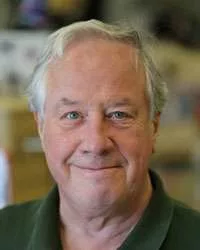Robert Fettiplace, PhD, who pioneered techniques to better understand the physiology of hearing, was announced as one of the winners of the Kavli Prize in Neuroscience, one of the world’s preeminent scientific honors, for work that helped unravel the mysteries hearing and deafness.
Fettiplace, the Steenbock Professor of Neural and Behavioral Sciences at the University of Wisconsin School of Medicine and Public Health, will receive a gold medal and share the $1 million Kavli Prize in Neuroscience with fellow hearing researchers Dr. A. James Hudspeth, of Rockefeller University, and Dr. Christine Petit, of the Pasteur Institute.
The Kavli Prize, established in 2008, is awarded in three areas of scientific inquiry: astrophysics, nanoscience and neuroscience.

The nanoscience prize was awarded to the inventers of the CRIPSR-Cas9 gene-editing tool: Dr. Emmanuelle Charpentier of the Max Planck Institute, Berlin; Dr. Jennifer Doudna of the University of California-Berkeley; and Dr. Virginijus Siksnys, of Vilnius University.
Dr. Ewine Van Dishoeck, of Leiden University, won the astrophysics prize.
The announcement of the Kavli Prize winners by the president of the Norwegian Academy of Science and Letters was broadcast live in New York as part of the opening event at the World Science Festival.
“The School of Medicine and Public Health is very proud of Professor Fettiplace’s outstanding scientific accomplishments and we are delighted that he has received this very well-deserved international recognition,” says Robert Golden, MD, dean of the school.
Donata Oertel, PhD, chair of the Department of Neuroscience, says that Fettiplace has devoted his career to understanding how hair cells of the inner ear allow us to hear.
“He pioneered numerous new techniques with which he could address problems unique to the ear,” Oertel says. “He published his findings in a series of ground-breaking papers that are as elegant in their approach, as beautiful in their writing, as rigorous in their analysis, and as meticulous in their scholarship as any I have read.
“I feel lucky to have Robert as a colleague and am thrilled that his work is being recognized by the Kavli Prize.”
Fettiplace, who began his studies at Cambridge University, is one of the world’s preeminent sensory physiologists. He spent his early career studying the inner ear of turtles, and found that that individual hair cells were tuned to resonate to a specific frequency, and that they were arranged along the cochlea much like the keys of the piano.
He predicted, then showed in a series of experiments in turtles and later in mammals, that the fine tuning of each hair cell is controlled by ion channels. Ole Petter Ottersen, head of the neuroscience prize committee, says that the work of the three scientists “provided fundamental new insight in how our inner ear transforms sound into electrical signals – the basis of hearing – and have unveiled genetic and molecular mechanisms underlying hearing loss.”
“Their work serves as a sterling example of how concerted efforts across disciplines and technologies can revolutionize our understanding of complex neurobiological processes. Between them the three laureates have helped unravel the sense of hearing.”
Fettiplace is a Fellow of the Royal Society and a Fellow of the American Academy of Arts and Sciences (AAAS).
The Kavli Laureates will receive their medals and prizes in September during a week of festivities in Oslo and Trondheim, Norway. The ceremony is presided over by King Harald of Norway, and hosted by American actor Alan Alda and Norwegian actress and singer Heidi Ruud Ellingsen.
About the Kavli Prize
The Kavli Prize recognizes scientists for pioneering advances in our understanding of existence at its biggest, smallest and most complex scales. Presented every two years in the fields of astrophysics, nanoscience and neuroscience, each of three prizes consists of $1 million and a gold medal.
Laureates are nominated by committees whose members are recommended by The Chinese Academy of Sciences, The French Academy of Sciences, The Max Planck Society (Germany), The National Academy of Sciences (US), The Royal Society (UK) and the Norwegian Academy of Science and Letters. Winners receive gold medals in Oslo, Norway, in a ceremony presided over by His Majesty King Harald. A banquet takes place at Oslo’s City Hall, the venue of the Nobel Peace Prize ceremony.